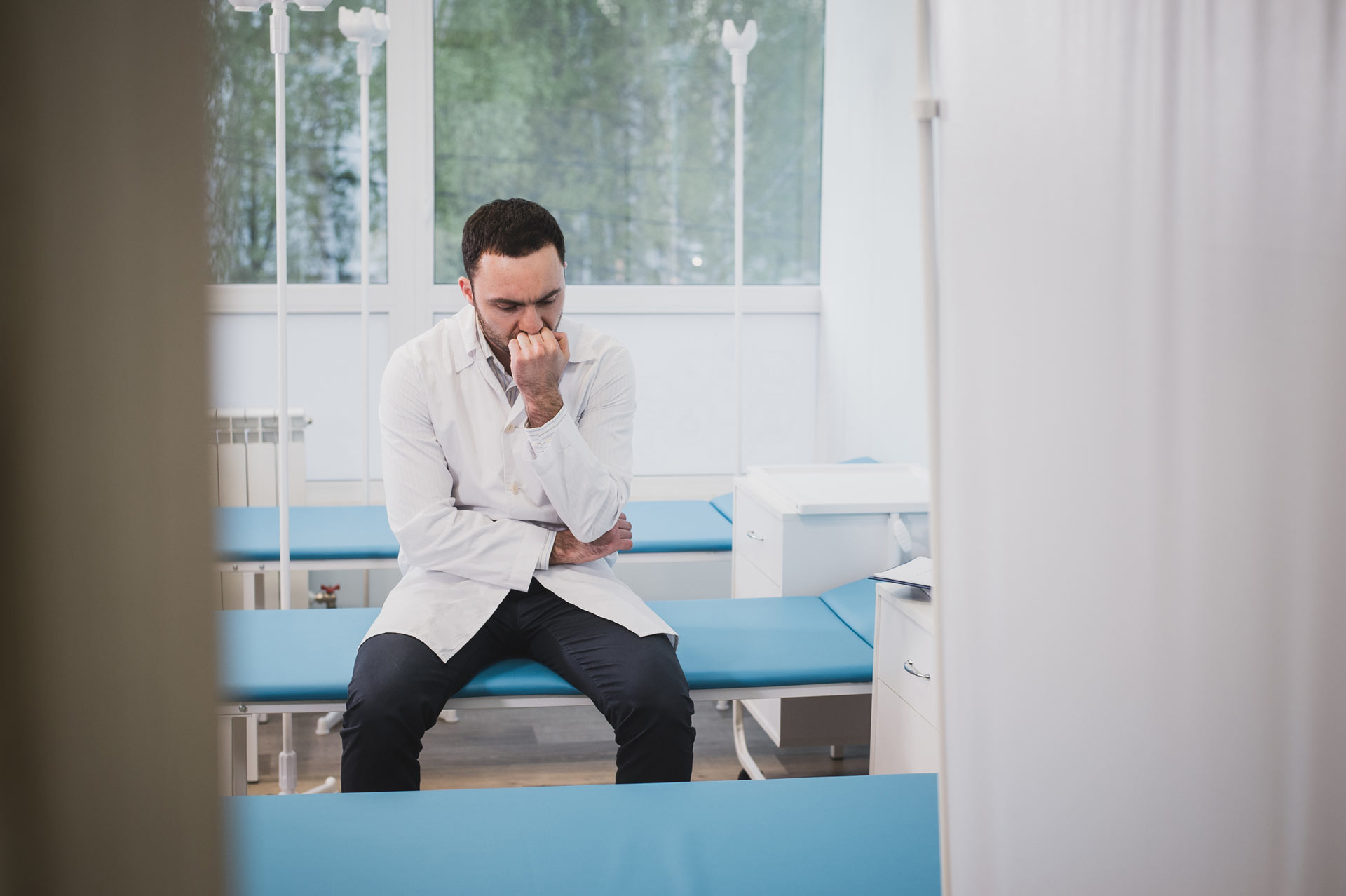There are volumes written about the ways that doctors cope with death. It is a deeply personal experience and coping mechanisms vary as widely as the doctors themselves. Many want to be supportive of the grieving family while protecting themselves personally from the death. It is important to be compassionate but not extremely vulnerable to the emotional toll that deaths can exact. At best, coping with death is a paradox that must be faced regularly by physicians. Finding a way to cope is essential.
The scary truth is that pediatric deaths are among the most difficult for physicians. The journal Archives of Disease in Childhood published a study on how pediatric specialists cope with the death of young patients. They reported that clinicians feel shock, self-doubt, and uncertainty.
The level to which a physician could cope with a pediatric death depended largely upon:
- The physician’s skill and confidence in communicating with the family
- The physician’s own emotional response to the death
- Internalization and personalization of the death
- Questions about the quality of care delivered
To survive, pediatricians reported using several strategies to cope with their emotional response to the death.
- Externalize the problem
- Become a little numb to death
- Develop a morbid sense of humor as a defense mechanism
Robert Lifton, a psychiatrist, mentioned the skill of becoming a “little numb to death” when interviewed on National Public Radio’s series, “The End of Life, Exploring Death in America”. Basically, the idea is to become partially numb to death so that the doctor can avoid the intense grief, but still be compassionate with the family. He says it’s all part of the role that doctors inhabit for patients – as “shamans” between life and death.
Coping with Death at All Ages
When it comes to patients who may die of natural causes, or die in old age, physicians must still learn to cope with death. The physician may have treated the patient for many years and know the family well. Only sturdy coping mechanisms can help physicians to process death and put it behind them in order to continue their practice.
Stacy Month, MD, is head of the Pediatric Hematology and Oncology Division at Oakland Kaiser Hospital in Oakland, California. She reflected on what happened when she experienced the first death of a patient.
“I sort of couldn’t leave their bedside, I was just so struck by the process and feeling like I had to take it all in and really experience what was going on with the family, with the child — and was certainly very upset by it.” Today, she goes to patients’ funerals when she can because it helps to work through the emotions, and she cries in private.
“There is a heaviness that we all feel — all the doctors, nurses, social workers, psychologists feel. And sometimes we think, wow, how do we do this?” she said.
Month’s coping mechanism is a mental attitude developed over 20 years in pediatric oncology: “The only way to get through it is not to say,‘These are my failures, these are the patients that died’. Rather, if you say. ‘This was the situation given to everyone, and these family members are the ones who are going to live on and be successful, productive members of society and not have severe depression the rest of their lives’, — then that’s a contribution that our team is making.”
More Support is Needed
The fact that doctors struggle to cope with patient deaths has been well documented in the literature. A study published in Science Daily pointed out the obvious fact that doctors could benefit from support to help cope with the trauma of patient deaths.
Researchers said that some of the physicians they spoke with about death wept as they recounted various experiences with patients, some that had occurred 30 years earlier.
Dr. Elaine Kasket from London Metropolitan University conducted the research and her conclusion is that emotional detachment from death may be a physician’s worst enemy.
“It is socially ingrained through medical school, and the cultures in both the UK and US medical establishments see a physician’s emotional response to death as a sign of weakness and even incompetence.
“It feeds into this popular image of the physician as some kind of superhuman ultimate rescuer of human life; unable to do his or her job if they give in to or even acknowledge their emotions,” she said.
Burying emotions of grief leads to depression, anxiety, and physician burnout. Kasket joins the chorus of voices calling for increased support for physicians to help them cope with death. “There needs to be a sea change in medical culture to make support available,” she said, “and for it not to be stigmatized, to help physicians cope with grief, depression, despair or sadness.”
Coping Skills
So how do you cope with patient death? The American College of Surgeons offers the following advice from among their experienced members:
- Tell the truth: Be completely honest with the patient and their families about the patient’s condition. Help them to anticipate what is going to happen and make the patient as comfortable as possible.
- Convey empathy: Communicate bad news in a private area; not a hospital lobby. After the death, ask what you can do to help the family with the grieving process. When communicating with the family, be aware of your body language and word choices.
- Talk to someone: If you are rattled by a patient death, find someone to talk to about it. Otherwise, your emotional state may affect your judgement when treating other patients.
From a Physician’s Point of View
Perhaps the most salient advice comes directly from a physician counseling younger physicians on the student doctor forum.
“I’m a critical care (ICU) fellow so I deal with this fairly often. The magnitude of my emotional response to a patient’s death seems to depend on how long I’ve been caring for them, the severity of their illness (how long I could see it coming,) and other factors, such as their age. I’m not saying one death is better or worse, or less sad than another. Some factors seem to produce a larger emotional response, like the longer I’ve known the patient, the more I’ve connected with them and their family.
I think it’s good to feel a range of emotions. People become doctors because they care about human life and want to help people. I think it’s a natural reaction to have a range of emotions when someone you want to help dies. I don’t think it would be good to ignore or suppress that. I prefer to acknowledge it, think about it in context, and reflect on what could have been done differently.
I think the best I can do as a doctor when someone is going to die (after all medical options have been exhausted) is to try to allow them to die with some dignity, and keep the family informed as to how their loved one is doing.” PMPMD





